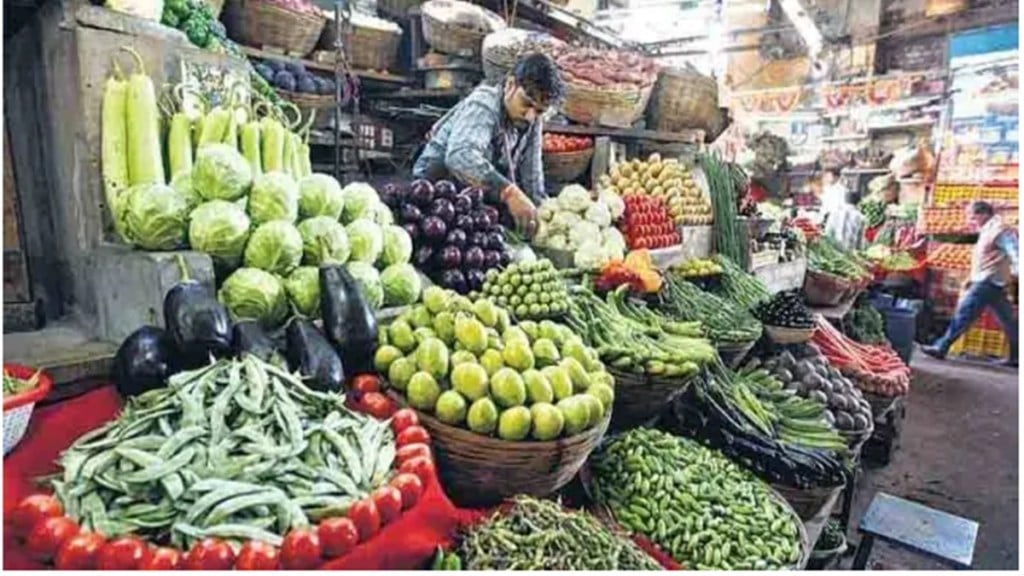With retail inflation spiking to a 15-month high of 7.44 per cent in July, economists said that the price pressures will sustain in the near term, pushing the expectation of a rate cut by the RBI further to the next fiscal. India’s retail inflation rate surged to 7.44 per cent in July 2023, driven by a rise in prices of vegetables, cereals, pulses, spices and milk and products, data released by the National Statistical Office (NSO) showed. “Even though the rise in vegetable prices is transient, the sustained price pressures in categories like cereals, pulses, spices, and milk can keep food inflation elevated in the near term. As a result, the headline number is expected to remain high over the next two-three months. The moderation in core inflation (to 5.1 per cent in July from 5.3 per cent in June) is reassuring. However, the recent uptick in global crude oil prices, global edible oil prices, and uneven progress in Kharif sowing warrant caution. The RBI will closely monitor these evolving trends to decide on its future policy course. However, the expectation of a rate cut has been pushed further to the next fiscal,” said Rajani Sinha, Chief Economist, CareEdge Ratings.
The RBI has the mandate to keep retail inflation in the range of 2 to 6 per cent and after remaining above the upper limit for most of the FY 2022-23, inflation was in RBI’s comfort zone this fiscal till June. The inflation print had last breached the 7 per cent mark in September 2022 and before that, in April 2022 when it was recorded at 7.79 per cent. This is the third instance of retail inflation rate crossing the upper limit of the 4+/- 2 per cent band of RBI’s medium-term inflation target in this calendar year and seventh instance since July 2022. The RBI mainly factors in the retail inflation while deciding the benchmark interest rate.
Aditi Nayar, Chief Economist, Head Research and Outreach, ICRA Ltd, said that the expectations are that the headline CPI inflation will print above the 6.5 per cent mark in August before cooling off materially in September. “The MPC’s latest forecasts suggest inflation will remain above 5 per cent through Q1FY2025, based on which we have pushed out our forecast for the earliest cut to Q2FY2025. Moreover, we continue to anticipate the rate cut cycle to be fairly shallow, limited to 50-75 bps,” she said. Further, she added that while the MPC had emphasized the need to be vigilant and to be ready to act appropriately to ensure that the effects of shocks do not persist, the bar for a rate hike would be quite high. “In our view, inflation would need to persist above 6.0 per cent for at least two quarters, amid transmission of pressures to core inflation, to set the stage for a rate hike,” she said.
Going forward from a dramatic hike in food prices
The spike in inflation to a 15-month high was primarily led by a significant increase in vegetable prices during the month amid elevated inflationary pressures in other food categories such as cereals, pulses, spices, and milk. Consequently, the contribution of food and beverages to overall inflation shot up to 65 per cent, much higher than its weight in the CPI basket. “A dramatic lift from food prices and, contrastingly, material comfort from non-food components (fuel and core) is influencing consumer price index (CPI) inflation. This pattern should continue for a few more months after which, government intervention and fresh crop arrivals should curb the food price spike. To that extent, therefore, the current pressure looks transient. In contrast, non-food inflation has been steadily softening, led by falling input-cost pressure. This has reduced the need to raise retail prices for most commodities,” said Dipti Deshpande, Principal Economist, CRISIL Limited. In July, goods inflation (excluding food) slid a 100 basis points to 4.2 per cent on-month, while services inflation softened 20 basis points on-month, to a low of 4.5 per cent. “But upside risks to our imminent inflation forecast of 5% for this fiscal have now materialised, given the higher-than-expected CPI print for July, and early signs that August would see only minimum relief,” she added.
Meanwhile, Deepak Agrawal, CIO- Fixed Income, Kotak Mahindra Asset Management Company, said, “CPI inflation for July 2023 came in way higher at 7.44 per cent, (14 month high), as against market expectation of 6.5 per cent. CPI ex veggies stood at 5.41 per cent YOY. Only solace is the core inflation, which came at 4.90 per cent vs 5.10 per cent for the previous month. Bond markets are likely to react negatively and 10 yr Gsec is likely to test 7.25 per cent.”


